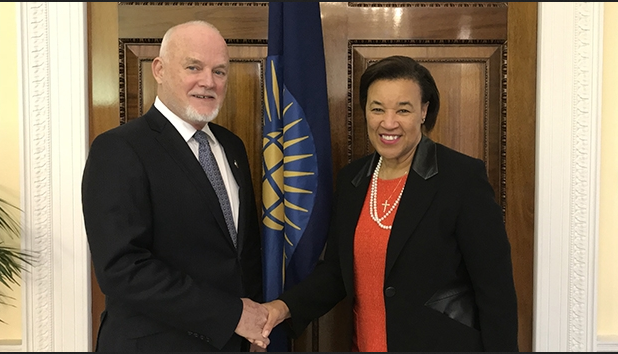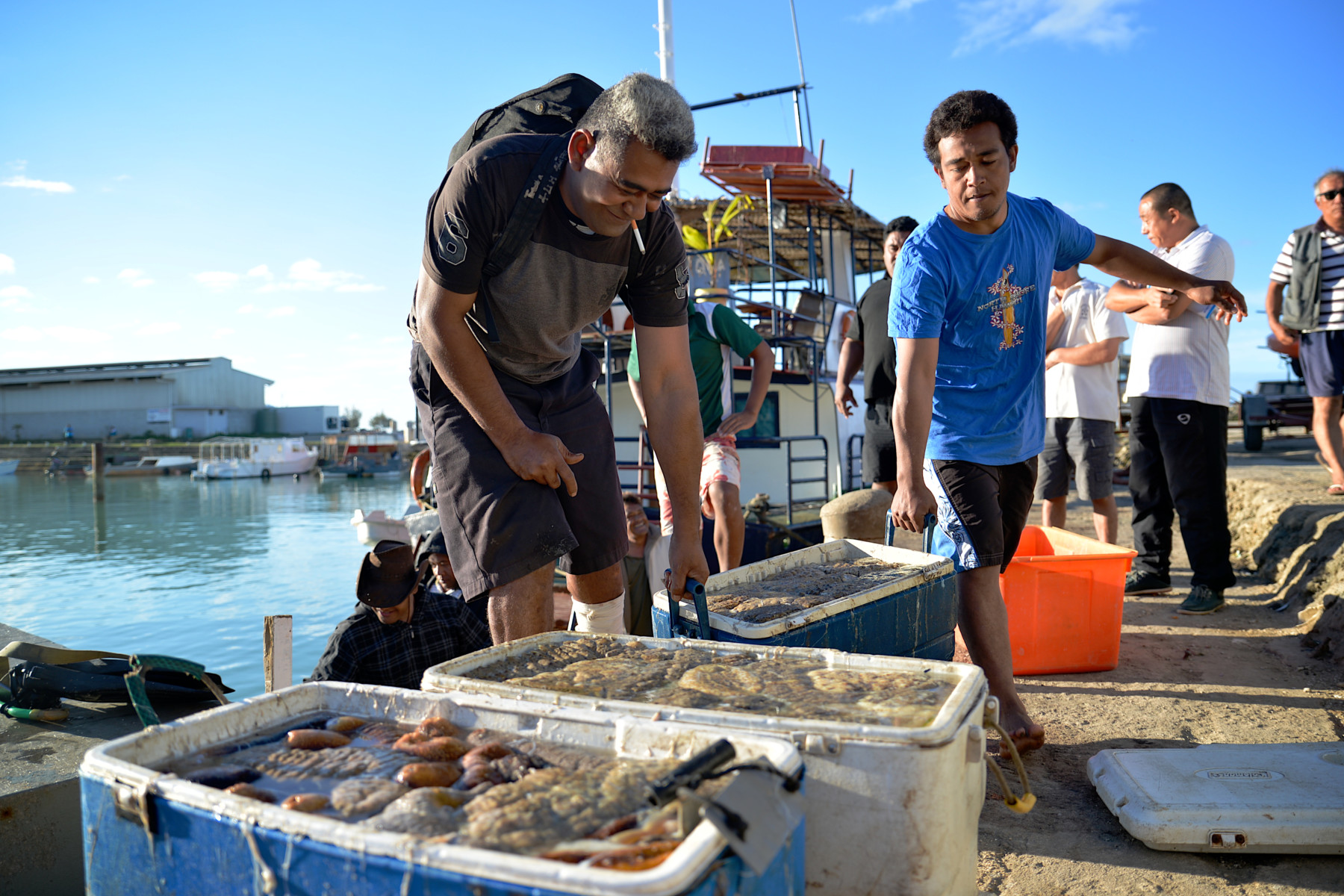Semisi Fakahau is Tonga’s Minister of Fisheries. His country is one of our 24 small island developing states (SIDS). Like many of them, his depends on the seas, and also like them Tonga wants to expand its fisheries. But that’s easier said than done. Climate change, overfishing and pollution threaten the future of their fishing industries. So when Mr Fakahau learned about our Blue Charter of principles for sustainable ocean development, he was full of praise.
Building on our “blue economy” experience
The Commonwealth Secretariat leads the way in supporting small island and coastal member countries in managing their marine environment sustainably. It does this while realising the ocean’s economic potential to benefit these islands.
For nearly three decades, we have provided advice and technical assistance to more than 30 countries to help them claim their maritime territory under international law, and manage their ocean-based natural resources.
We are pioneers of the “blue economy” concept, which marries the objective of unlocking value from the seas with the imperative of conservation.
In June 2017, Secretary-General Patricia Scotland made our proposal at the UN Ocean Conference. Co-chaired by the Governments of Fiji and Sweden, the high-level summit at the UN General Assembly in New York was held to help countries chart a course to achieve the Sustainable Development Goals (SDGs), in particular Goal 14, to “conserve and sustainably use the oceans, seas and marine resources”.
The conference resulted in a call for action which aims to protect the oceans while also respecting the right of countries to sustainably develop their blue economies. To date, over 1,400 voluntary commitments have been tabled, as governments and private and civil society partners outlined steps they are taking to make good on the vision of SDG 14.
We are pioneers of the 'blue economy' concept, which marries the objective of unlocking value from the seas with the imperative of conservation.
At the conference, Secretary-General Scotland proposed the Commonwealth’s “Blue Charter”, which would apply the values of the Commonwealth Charter – including democracy, good governance and the commitment to fairness and equity – to a sustainable ocean development. It will marry the goal of unlocking economic value from the seas with the imperative of protecting the environment. It recognises that ocean wealth depends on ocean health.
This accord will help countries across Africa, Asia, Europe, the Caribbean, the Americas and the Pacific to develop an integrated approach to ocean governance. This means considering the needs of the smallest and most at-risk countries and marginalised groups, including overlooked sectors such as artisanal fishing as well as women and young people.
Blue Charter gains traction
The Prime Minister of Grenada Keith Mitchell was one of the high-level speakers at the Commonwealth’s side event at the UN conference. He said that he backed the Blue Charter proposal, noting that his country’s economy is increasingly reliant on coastal tourism. Factors beyond the control of many small island states including global trade shocks and climate change mean that they are in need of support, he said.
Nicos Kouyialis, Cyprus’s Minister of Agriculture, Rural Development and Environment, backed the proposal saying, “The economies and wellbeing of our countries depend on the healthy marine environment. It is our obligation to protect our oceans and to promote blue growth and the blue economy.”
Khurshed Alam, Secretary of Bangladesh’s Maritime Affairs Unit, said: “The seas need to be exploited sustainably [for which countries] need capacity, technology and resources. This is where we think the Blue Charter will be a game changer for the Commonwealth and that’s why I congratulate the Secretary-General.”

Since the June 2017 conference, the Blue Charter concept has continued to gain traction. Our Secretary-General discussed it with UN Special Envoy on Oceans Peter Thomson at Marlborough House, London, in November, and it was on the agenda again in Buenos Aires, in December. That was when the Commonwealth and the United Nations Conference on Trade and Development (UNCTAD) joined forces for a side-event at the World Trade Organization’s Ministerial Conference.
More progress on the blue economy in 2015-2017
In 2016/17, our work in this area continued to gain global prominence. The Secretariat co-authored a major blue economy report and developed an assessment of the status of the blue economy in the Caribbean with the World Bank. The Bahamas and Vanuatu adopted new national oceans policies, developed with our support.
Technical assistance to develop Seychelles’ blue economy since 2012 has led to the implementation of its new National Blue Economy Strategy. The Secretariat supported its drafting, as well as significant institutional changes, notably the establishment of a dedicated blue economy department within the Ministry of Finance, Trade and Blue Economy.
In 2015/16, interest in our blue economy work gained momentum. The World Bank announced the launch of a US$100 million project to support the implementation of the blue economy in the Caribbean as the result of work undertaken by the Secretariat with the Organisation of Eastern Caribbean States (OECS).
All but seven of the Secretariat’s 53 member countries are coastal and 25 are SIDS. The Commonwealth’s Blue Charter will enable the development of thematic communities of practice, with their agendas set by our members. Together, we will work to meet our ocean commitments, for more prosperous ocean economies and healthier marine environments.
“The proposed idea of the Commonwealth Blue Charter is very timely and relevant and Tonga is very much interested in engaging in its development.” – Semisi Fakahau, Minister of Fisheries, Tonga’s Minister of Fisheries


